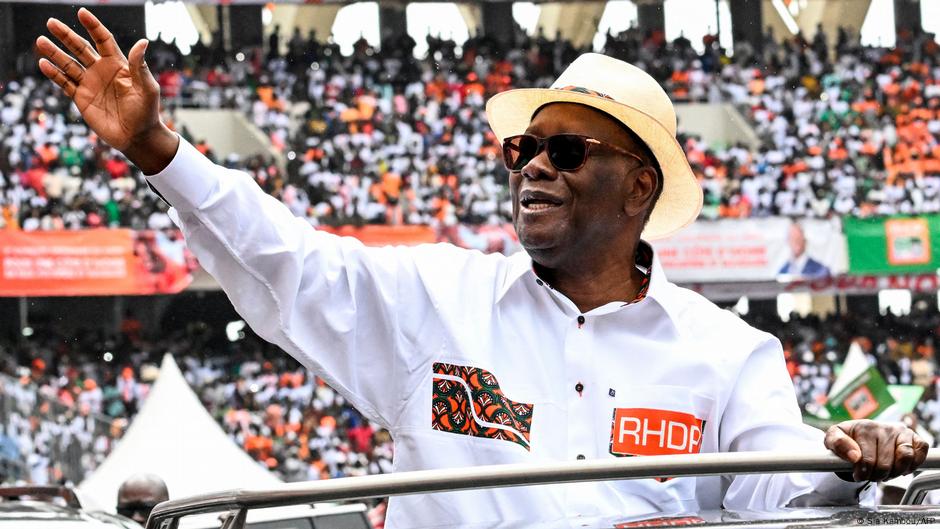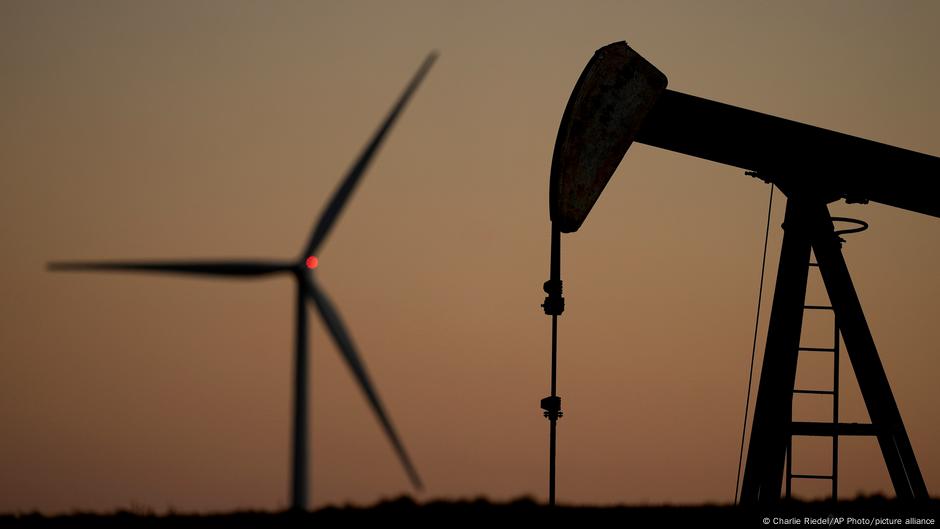Sursa: DW
Category: International
-
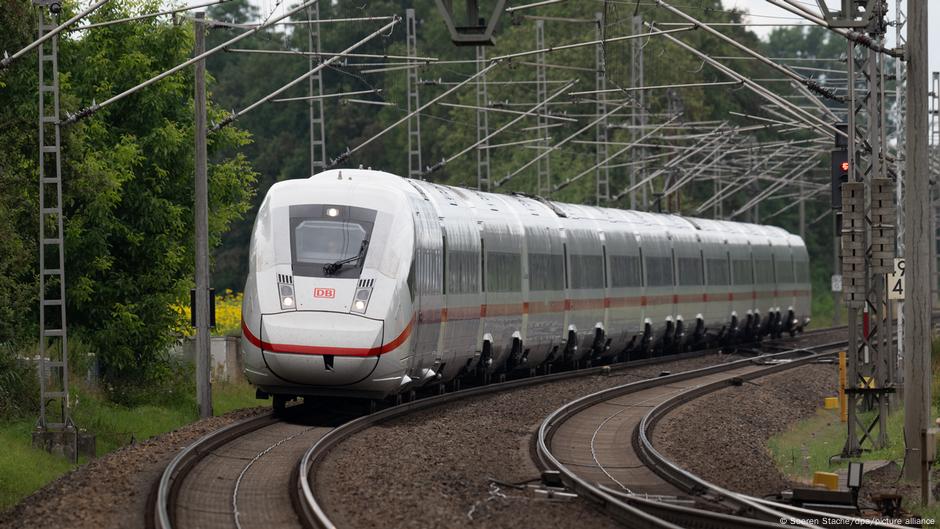
Berlin – Hamburg: Deutsche Bahn închide principala rută din Germania
Începând de vineri, trenurile interurbane de pasageri vor trebui să facă un ocol de 100 de kilometri, în timp ce trenurile de marfă vor fi redirecționate și mai mult. De asemenea, 170 de autobuze vor fi desfășurate zilnic pentru a continua conectarea orașelor dintre Berlin și Hamburg care vor fi întrerupte de la serviciul feroviar. Atât lucrările de construcție, cât și transportul de înlocuire vor fi complexe și potențial predispuse la perturbări.
Infrastructură dărăpănată, decenii de neglijență
Joi, Deutsche Bahn a raportat o pierdere de 760 de milioane de euro pentru prima jumătate a anului. Compania a calificat acest lucru drept un progres, deoarece pierderile s-au redus cu aproape 1 miliard de euro față de anul precedent.
„Deutsche Bahn se confruntă cu cea mai mare criză din ultimii 30 de ani”, a recunoscut CEO-ul Richard Lutz în mai 2025. „Nu putem asigura operațiuni stabile pe o infrastructură predispusă la defecțiuni și învechită.”
Primul tren cu hidrogen din lume circulă în Germania
Pentru a viziona acest videoclip, vă rugăm să activați JavaScript și să luați în considerare actualizarea la un browser web care acceptă videoclipuri HTML5
Rețeaua feroviară națională a Germaniei acoperă aproximativ 33.500 de kilometri de linii. Ca companie de stat, operatorul Deutsche Bahn depinde de subvențiile guvernului federal, despre care criticii spun că a investit mult prea puțin în infrastructură în ultimele decenii.
De fapt, unele linii, intersecții și chiar tablouri de semnalizare datează din secolul al XIX-lea. Multe sisteme sunt complet uzate, aproape ireparabile și acum atât de învechite încât sunt inutilizabile pentru operațiunile feroviare controlate digital, care urmează să devină standard.
Nu există nicio modalitate de a le reconstrui complet. Proiectul de „renovare generală” a început în 2024, concentrându-se pe 41 de linii principale, care au o lungime totală de 4.200 de kilometri și sunt esențiale pentru operare.
Cea mai mare renovare generală a Deutsche Bahn
Linia de 70 de kilometri dintre Frankfurt pe Main și Mannheim a fost prima care a fost modernizată. A fost complet închisă timp de șase luni, deoarece liniile ferate și liniile aeriene au fost demontate și reinstalate. Cele 20 de stații de-a lungul traseului, tehnologia de semnalizare și izolația fonică au fost, de asemenea, reînnoite. Instalarea tehnologiei digitale s-a dovedit a fi mai complicată decât se aștepta. Costurile de construcție au crescut la peste 1,5 miliarde de euro (pe care Deutsche Bahn ar fi trebuit să i se solicite să demonstreze viabilitatea economică a acțiunilor sale).
Fonduri suplimentare pentru renovare ar trebui puse la dispoziție doar după ce Ministerul Transporturilor a „dovedit fără îndoială că acestea au fost necesare și economice”, a declarat biroul.
Acest lucru a determinat Deutsche Bahn să anunțe că renovarea generală va fi prelungită cu șase ani, până în 2036.
Compania și-a redus acum semnificativ planurile inițiale de construcție. Numărul de noi linii de depășire și macazuri – care asigură că trenurile rapide le pot depăși pe cele lente – a fost redus.
Instalarea Sistemului European de Control al Trenurilor (ETCS) a fost amânată până în următorul deceniu.
Guvernul a promis fonduri suplimentare pentru renovarea rețelei feroviare. Ministrul Transporturilor, Patrick Schnieder, a promis investiții în infrastructura feroviară în valoare totală de 107 miliarde de euro până în 2029. Cea mai mare parte a banilor va proveni din Fond special finanțat prin datorii pentru infrastructură și protecția climei, lansat la începutul anului.
Urmărește cele mai importante știri
Cum să călătorești cu trenul în Germania
Pentru a viziona acest videoclip, vă rugăm să activați JavaScript și să luați în considerare actualizarea la un browser web care acceptă videoclipuri HTML5
Întârzierile costă milioane
În prezent, doar 62% din trenurile germane sunt la timp – adică cele care sosesc în termen de șase minute de ora programată. Trenurile anulate sunt la fel de frecvente ca trenurile care nu ajung la destinația finală. Când există o grevă sau temperaturile exterioare sunt foarte ridicate sau foarte scăzute, există și mai multe probleme.
Călătoria cu trenul în Germania necesită mult timp, multă răbdare și nervi puternici. Întârzierile de două până la trei ore nu sunt neobișnuite. În 2024, Deutsche Bahn a trebuit să plătească pasagerilor săi aproape 200 de milioane de euro drept despăgubiri, aproape Cu 70 de milioane de euro mai mult decât în anul precedent.
Mai multă concurență pe căile ferate?
Oficiul Federal de Audit a emis, de asemenea, un avertisment că banii singuri nu vor putea rezolva „criza actuală” de la Deutsche Bahn și solicită o revizuire completă a întregii companii, inclusiv o „ajustare a structurii corporative”. Aceasta ar însemna separarea corporației de sutele sale de holdinguri și filiale.
De ani de zile, s-a discutat și despre separarea infrastructurii feroviare de transport, pentru a permite mai multor companii private să intre în concurență pe căile ferate.
În prezent, auditorii au puține speranțe că căile ferate își vor reveni în curând. În raportul său din mai, acesta a concluzionat că Deutsche Bahn nu va putea îndeplini „așteptările privind politica de transport și climă în viitorul previzibil”.
Acest articol a fost scris inițial în germană.
În timp ce sunteți aici: În fiecare marți, editorii DW fac un rezumat al evenimentelor politice germane. și societate. Vă puteți abona aici la newsletter-ul săptămânal prin e-mail, Berlin Briefing.
Sursa: DW
-
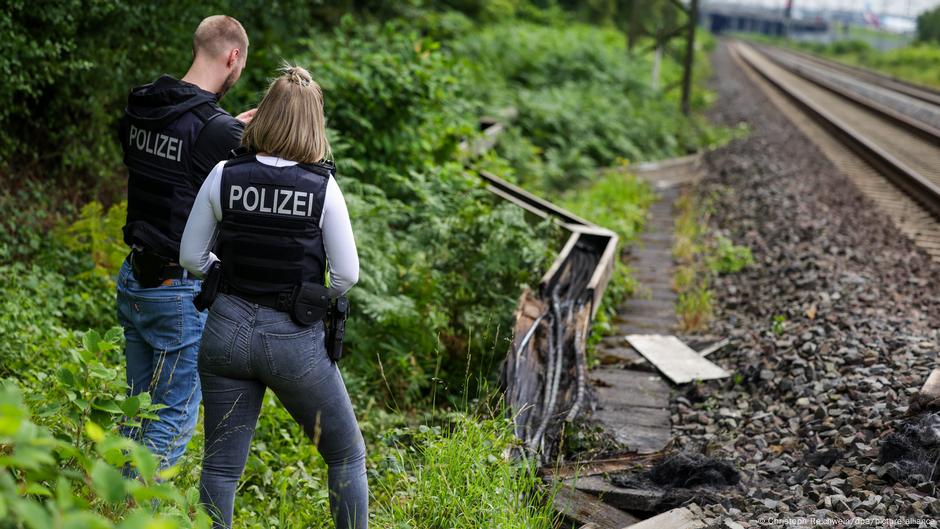
Actualizări Germania: Suspiciuni de sabotaj în urma perturbării majore a căilor ferate
A railway spokesperson stated that train traffic would face significant delays, with the disruption expected to last throughout the day.
Long-distance services are also affected.
It comes on the same day that Deutsche Bahn reported that 63.4% of its long-distance trains are now arriving within 15 minutes of schedule.
In its first-half results, the company also reported a reduced loss of €760 million, nearly €1 billion less than in the same time last year.
These live updates have been closed. Thank you for reading.
Below you can read a roundup of events, backgrounders and analysis from Germany from Thursday, July 31:
Skip next section Germany: E-scooter accidents skyrocketing year for year07/31/2025July 31, 2025
Germany: E-scooter accidents skyrocketing year for year
Jon Shelton
Germany’s Federal Statistical Office on Thursday published new data documenting a rise in the number of individuals injured or killed on or by e-scooters.
Legalized in 2019 and hailed as a smart transportation solution, the number of injuries recorded on the vehicles has climbed steadily since their introduction.
Data released Thursday documented 11,944 accidents resulting in personal injury on the country’s streets — a 26.7% jump from 2023, when the number was 9,425 — and more than twice the number from 2021.
A total of 27 people died in scooter-related accidents in 2024, up from 22 in 2023.
Some 83.9% of those injured (10,886 individuals) as well as all 27 killed were operating scooters themselves, while 4.7% (508 individuals) were riding along when injured (up from 3.9% in 2023).
Nearly half (48.6%) of those involved in accidents were under the age of 25.
Many e-scooter accidents (21.2%) involved operators ignoring traffic rules, for instance, by driving on sidewalks.
Alcohol was a contributing factor, with 12.4% of those involved in accidents operating scooters while intoxicated — a far higher percentage than those on bicycles or mopeds.
Speeding (8.0%) and failing to observe right-of-way laws (6.2%) were the third and fourth most frequent causes of accidents.
In terms of responsibility, statistics found e-scooter drivers at fault in roughly half of all accidents involving them (47.6%).
Though e-scooter drivers were at fault in 35.2% of accidents involving cars, those stats change dramatically when it came to incidents involving bicycles and pedestrians — where e-scooter drivers were to blame for 72.7% and 87.7% of accidents, respectively.
The study did not track other injuries sustained by drivers, bicyclists or pedestrians and involving carelessly abandoned e-scooters on roads, bike paths or sidewalks.
No driver’s license or training courses are required to operate e-scooters, which anyone 14 years of age or older is allowed to rent and drive.
Paris votes on banishing e-scooter rentals
To view this video please enable JavaScript, and consider upgrading to a web browser that supports HTML5 video
https://p.dw.com/p/4yM9mSkip next section German armed forces report increase in recruits07/31/2025July 31, 2025
German armed forces report increase in recruits
Amy Stockdale Reuters, EPD, dpa
The German armed forces have said recruits for both active service and voluntary service increased compared to the same period last year.
According to the figures from the Ministry of Defense, 28% more people joined the military.
For voluntary service, the ministry has reported that 11,350 people have signed up so far this year, representing a 15% increase from the beginning of 2024. It called the development “particularly encouraging, also with regard to the planned new military service.”
According to figures from the ministry, the armed forces currently have around 183,100 recruits, which is around 2,000 more than the same period in 2024. Germany aims to have 260,000 active soldiers by the 2030s, bringing the country into line with NATO force targets.
The Defense Ministry said advertising campaigns and the current international situation are reasons for the rise, adding that young people “want to make a conscious commitment to the armed forces for the security of Germany.”
At the end of August, the German government is set to vote on a bill on military service. If passed, the government would require all men turning 18 to complete a digital survey on their willingness and ability to serve in the military.
Germany’s goal is to recruit up to 15,000 new conscripts each year. The country ended conscription in 2011.
German army needs more volunteers to fulfill NATO tasks
To view this video please enable JavaScript, and consider upgrading to a web browser that supports HTML5 video
https://p.dw.com/p/4yM9vSkip next section Germany’s wolf population is growing07/31/2025July 31, 2025
Germany’s wolf population is growing
The number of wolves in Germany is increasing, according to a report submitted by the German government to the European Union.
The wolf population has “grown in a significantly positive way” in recent years, meaning the animal’s conservation status can, for the first time, be classified as “favorable,” according to the report.
However, this classification only applies to what’s known as the biogeographical Atlantic region, which covers northwest Germany.
The status of wolves in the so-called continental region, which makes up most of the rest of the country, will be presented later this year.
The German Farmers’ Association accused the federal government of a “tactical delay.”
Farmers have been advocating for years for the ability to cull wolves to protect their farms and livestock. Since the wolf is a protected species, the conservation status is one of several criteria that determines whether hunting is allowed.
Agriculture Minister Alois Rainer also announced an amendment to the Federal Hunting Act, saying he wants to “improve the protection of grazing animals.”
However, the environmental organization WWF said in its assessment that “no favorable conservation status has yet been achieved” nationwide.
Environment Minister Carsten Schneider said he is sure “the interests of both nature conservation and livestock owners can be met.”
Wolves were once widespread in central Europe, but had been hunted almost to extinction in the 19th century. In the last 20 years, populations have returned to Germany as they’ve naturally migrated from Poland.
https://p.dw.com/p/4yLt1Skip next section 30,000 sign petition calling for return of Yazidi family to Germany07/31/2025July 31, 2025
30,000 sign petition calling for return of Yazidi family to Germany
More than 30,000 people in Germany have signed a petition calling for the return of a Yazidi family deported to Iraq.
The family was deported despite a court having lifted their obligation to leave the country on the same day.
On Tuesday, last week, 43 people were deported to Iraq on a charter flight from Leipzig to Baghdad. The Yazidi family was among those on board.
The Yazidis are a religious minority that suffered genocide at the hands of the so-called “Islamic State” (IS) militant group in Iraq in 2014, making such deportations particularly contentious.
Classmates of the family’s 6-year-old child appear to have created a petition on Change.org, stating that the family was deported “for no apparent reason” and urging German authorities to work toward bringing them back.
Last week, Brandenburg’s Interior Minister Rene Wilke said he wanted to bring the family back quickly in coordination with the federal government.
https://p.dw.com/p/4yKoqSkip next section Suspected sabotage disrupts major rail line between Düsseldorf and Duisburg07/31/2025July 31, 2025
Suspected sabotage disrupts major rail line between Düsseldorf and Duisburg
A Deutsche Bahn spokesperson said trains would be massively delayedImage: Christoph Reichwein/dpa/picture alliance
Police in Germany are investigating an alleged act of sabotage targeting a major railway line between Düsseldorf and Duisburg, which has disrupted both regional and long-distance services.
The fire broke out in a cable duct near Düsseldorf and was discovered when a train driver noticed smoke and raised the alarm.
Deutsche Bahn warned of significant delays, rerouted trains, and suspended stops at several stations in the region.
High-speed rail lines to Berlin and Frankfurt am Main, as well as connections to northern and southern Germany and the Netherlands, have also been impacted, the rail operator announced.
The cables in the affected tunnel segment were destroyed and will need to be replaced.
https://p.dw.com/p/4yKwzSkip next section Lawmakers greenlight €1.1 billion for urgent bridge repairs 07/31/2025July 31, 2025
Lawmakers greenlight €1.1 billion for urgent bridge repairs
German lawmakers in the Bundestag’s Budget Committee have unlocked €1.1 billion (due to a lack of funds. The state-owned company warned of major delays to bridge renovations as billions in infrastructure funding remained unavailable.
The German government said Thursday’s approval means Autobahn can fully spend the €2.5 billion earmarked in the special fund this year for bridge and tunnel rehabilitation, including on major traffic arteries such as the A7 and A3 motorways.
As many as 5,000 of the 40,000 bridges along the country’s autobahns are in such poor condition that they urgently need repair. More than half of the autobahn bridges were built before 1985, including most of the major valley bridges in former West Germany.
Autobahn reported a “dramatic increase” in the maintenance backlog on highways, which could severely impact traffic safety.
https://p.dw.com/p/4yKhWSkip next section German inflation unchanged at 2% in July07/31/2025July 31, 2025
German inflation unchanged at 2% in July
German inflation remained unchanged in July, preliminary data from the Federal Statistics Office Destatis showed.
Annual inflation in Europe’s top economy came in at 2.0%.
https://p.dw.com/p/4yKbESkip next section Germany unemployed close to 3 million-mark07/31/2025July 31, 2025
Germany unemployed close to 3 million-mark
Unemployment in Germany rose by 65,000 in from June to July, just shy of a total of 2.979 million, according to the Federal Employment Agency in Nuremberg.
The unemployment rate now stands at 6.3%, with Bremen and Berlin the cities with the most unemployed people.
That’s 171,000 more than the same time last year.
Experts expect the total number of unemployed to top 3 million in August.
“Unemployment has risen due to the start of the summer break. Companies remain cautious about reporting new jobs, and employment subject to social insurance contributions is hardly increasing at all,” Andrea Nahles, the head of the Federal Employment Agency said.
https://p.dw.com/p/4yKMESkip next section Celebrities urge German chancellor to halt arms to Israel07/31/2025July 31, 2025
Celebrities urge German chancellor to halt arms to Israel
More than 200 celebrities have signed an open letter to Friedrich Merz, stating that “words alone won’t save lives” in Gaza.
They are urging the German chancellor to halt arms deliveries to Israel over its military actions in Gaza.
“We too condemn the horrific crimes committed by Hamas in the strongest possible terms. But no crime justifies collectively punishing millions of innocent people in the most brutal manner,” the letter states.
Actors Daniel Brühl and Heike Makatsch, along with musicians Shirin David and Zartmann, are among the artists and media personalities who co-signed the letter, which was organized by the campaign group Avaaz.
Germany approved €326.5 million (in arms exports to Israel in 2023, a sharp increase from previous years. In 2024, approvals fell by half amid mounting legal and political pressure.
In addition to calling for a ban on weapons deliveries, the signatories want Merz to support suspending the European Union’s Association Agreement with Israel. They also demand an immediate cease-fire and unrestricted access for humanitarian aid.
“These steps are deeply in line with European values and would make it unmistakably clear to the Israeli government that even its closest allies can no longer accept the suffering, and that words are not enough,” the letter reads.
Germany debates whether to keep supplying weapons to Israel
To view this video please enable JavaScript, and consider upgrading to a web browser that supports HTML5 video
https://p.dw.com/p/4yK4eSkip next section Deutsche Bahn punctuality improves slightly, but challenges remain07/31/2025July 31, 2025
Deutsche Bahn punctuality improves slightly, but challenges remain
Once renowned for its punctuality, Germany’s rail operator has struggled in recent years to maintain its reputation.
However, Deutsche Bahn reported a slight improvement over the past six months, with 63.4% of long-distance trains arriving within 15 minutes of schedule, according to its first-half results.
This marks a modest increase from 62.7% in the first half of 2024.
The state-owned rail operator said it aims to raise punctuality to between 65% and 70% by the end of the year.
Despite ongoing issues with delays, passenger numbers rose to 943 million in the first half of 2025, reflecting continued demand for rail travel.
The company also reported a reduced loss of €760 million for the period, nearly €1 billion less than in the same time last year.
Revenue increased by 3.4% to €13.3 billion, although it still fell short of internal targets.
CEO Richard Lutz emphasized the urgent need to modernize the country’s aging rail infrastructure.
How to travel by train in Germany
To view this video please enable JavaScript, and consider upgrading to a web browser that supports HTML5 video
https://p.dw.com/p/4yJi1Skip next section Profit up in second quarter for Lufthansa07/31/2025July 31, 2025
Profit up in second quarter for Lufthansa
Lufthansa, Germany’s flagship carrier, reported a 27% increase in second-quarter operating profit year-on-year, reaching €871 million (is definitely a ceasefire,” but also said something needs to be done “to ease the suffering of people” in Gaza.
“The number of victims in the Gaza Strip is too high.”
Wadephul, from the center-right CDU, will be joined by a member of the Social Democrats (SPD) with whom they govern in a coalition.
SPD deputy parliamentary group leader Siemtje Möller told public broadcaster ARD before the two-day trip that “real pressure” was needed to end the suffering in Gaza.
Möller gave six aims that Germany has: large-scale humanitarian aid for the Gaza Strip, a ceasefire, the release of hostages held by Hamas, the disarmament of Hamas, peace negotiations, and an end to Israeli settlements in the West Bank that violate international law.
Despite its commitment to a two-state solution, Germany has not joined the growing number of Western countries that have pledged to recognize Palestinian statehood in response to the humanitarian crisis caused by Israel in Gaza.
However, Möller suggested that Germany could consider recognizing a Palestinian state sooner than expected.
“The recognition of a Palestinian state is not a taboo and doesn’t necessarily have to come at the end of a [two-state] process,” she said before the flight.
https://p.dw.com/p/4yJVDSkip next section Crashed helicopter recovered from Mulde07/31/2025July 31, 2025
Crashed helicopter recovered from Mulde
Image: Sören Müller/Medienportal-Grimma/dpa/picture alliance
A helicopter used by the German military that crashed into the Mulde River the town of Grimma in the eastern German state of Saxony, has been removed, the Air Force said.
Two people were killed in the crash Tuesday, and one person remains missing.
Divers have been scouring the river, while soldiers have combed the riverbanks in search of the missing crew member.
The helicopter was flying at a low altitude when it went down near a bridge over the A14 motorway.
The cause of the crash is under investigation.
Editors note: The headline of this entry has been updated to reflect the correct name of the river: Mulde.
https://p.dw.com/p/4yItKSkip next section Tributes pour In after Laura Dahlmeier’s death in Pakistan07/31/2025July 31, 2025
Tributes pour In after Laura Dahlmeier’s death in Pakistan
Germany and the international sports community have reacted with shock to the news that Laura Dahlmeier has died in a mountaineering accidentin Pakistan.
The two-time Olympic gold medal-winning German biathlete was confirmed dead on Wednesday, two days after being caught in a rockslide high in the mountains of northern Pakistan.
The 31-year-old was swept away by falling rocks on Monday at an altitude of around 5,700 meters (18,700 feet) while ascending the 6,069-meter-high Laila Peak.
German President Frank-Walter Steinmeier offered his condolences to Dahlmeier’s parents, writing that she “was an exceptional sportswoman.”
“Laura Dahlmeier was an ambassador for our country in the world, a role model for peaceful, cheerful and fair coexistence across borders,” he said.
International Olympic Committee president Kirsty Coventry described the news as “deeply shocking for all of us in the Olympic Movement.”
“Laura made history at the Pyeongchang 2018 Winter Olympics as the first female biathlete to win sprint and pursuit gold at the same Games edition. She will be remembered forever. Our thoughts are with her family and friends at this very difficult time,” Coventry said.
The International Biathlon Union (IBU) said, “throughout her career and following her retirement, Laura’s drive to push beyond limits and embrace challenges touched and inspired countless lives around the world.”
The German Ski Federation DSV said they were “shocked and deeply saddened” to learn about Dahlmeier’s death. “In Laura, the German Ski Federation has not only lost an outstanding athlete, but also a very special person. Her legacy will reach far beyond sport. We will honour her memory,” the DSV said.
Magdalena Neuer, who also won two Olympic golds and 12 world titles in biathlon, posted a photo of herself and Dahlmeier along with a heart emoji on Instagram.
https://p.dw.com/p/4yIobSkip next section Welcome to our blog07/31/2025July 31, 2025
Welcome to our blog
Louis Oelofse | Elizabeth Schumacher Editor
Gray skies and steady rain over Bonn this morning, guten Morgen.
Germany is mourning the loss of Olympic biathlon champion Laura Dahlmeier, who died in a climbing accident while ascending Laila Peak in Pakistan’s Karakoram range. President Frank-Walter Steinmeier led tributes, calling her a role model and a national treasure.
Rescue teams confirmed her death on Wednesday, but due to harsh weather conditions, they were unable to recover her body. In today’s blog, we’ll reflect on Dahlmeier’s legacy and how she’ll be remembered by fans, fellow athletes, and the wider public.
Later this morning, we’re expecting fresh data from Germany’s statistics office: an early estimate of July’s inflation. Analysts are predicting a slight slowdown in price growth, though not enough to bring real relief to consumers still grappling with high costs for food and services.
https://p.dw.com/p/4yImjShow more postsLouis Oelofse DW writer and editorSend us your feedback
Sursa: DW
-
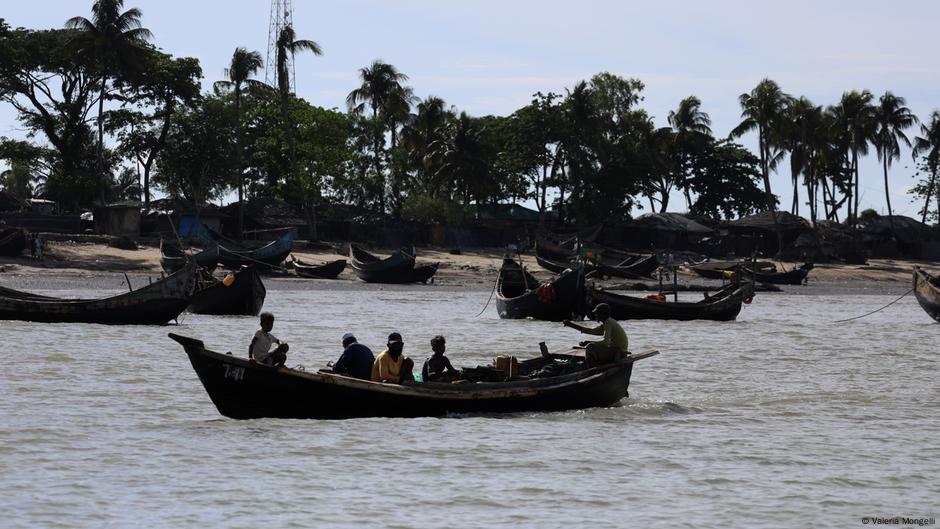
Pescarii din Bangladesh riscă să fie răpiți în contextul tensiunilor la granița cu Myanmar
Siddiqui earns his livelihood as a fisherman in the river. “I head out to fish on my wooden boat at around 7 a.m. and come back home around 1 p.m.,” the 24-year-old told DW.
“I love it and earn between 500-600 taka (
“In early May, I went to the Naf River as I always have and hauled my fishing nets into the water. I was with two other fishermen. Suddenly, we saw the AA coming by their engine-powered boat towards us, and they fired around 20 bullets at us,” he said.
“They had a person on their boat who spoke to me in our local language, Bengali, put a gun to my head, and asked me why we crossed into their territory. But we had not crossed Bangladesh’s maritime border,” Siddiqui said.
He described how the AA handcuffed them, tied their legs, put them on their boat and took them to Rakhine state, where they were imprisoned.
“During our imprisonment, some AA members would also get drunk on wine and come and beat us,” Siddiqui recalled.
Fisherman Mohammed Siddiqui (center) was abducted in May by the Arakan Army, along with two other menImage: Valeria Mongelli
After two days, the Border Guard Bangladesh helped rescue the three fishermen following a call with the AA, and they returned to Teknaf.
“The entire incident shook me. I am suddenly scared to fish. During the time I was kidnapped, my wife cried a lot. Fishing is our source of livelihood and if I was killed, my family would struggle,” Siddiqui said.
Dangerous tensions across Myanmar border
The AA, one of Myanmar’s most powerful ethnic armed groups, has been fighting against the country’s military since 2015. While there have been a couple of temporary ceasefires for humanitarian reasons or natural disasters like earthquakes, the fighting has intensified since 2023.
Currently, the AA controls 14 of Rakhine state’s 17 townships, as well as Paletwa Township in neighboring Chin State. In December, the AA also captured Maungdaw Township in Rakhine state, which is a key military stronghold and region in western Myanmar, bordering Bangladesh.
Myanmar’s military previously controlled the 270-kilometer (170-mile) maritime border between Myanmar and Bangladesh. But with the AA gaining power in Maungdaw, the control of the border fell into their hands.
Since then, reports of Bangladeshi fishermen being abducted by the AA have become relatively common. Around 15 were captured and later rescued in February, and another 56 were kidnapped and rescued in March.
“These incidents are causing significant frustration for both Dhaka and the Arakan,” Thomas Kean, senior consultant for Myanmar and Bangladesh at International Crisis Group, an NGO, told DW.
“From the AA’s perspective, illegal fishermen are encroaching on their territory without permission, and they think the problem is increasing and Dhaka and the local authorities are not doing enough to prevent it,” he said.
From the Naf River, the hills of Myanmar’s Rakhine state can be seen in the distanceImage: Valeria Mongelli
Kean added that the AA view itself as the legitimate authority in these areas, and would contend that their actions amount to law enforcement, not abduction.
“On the other hand, it is hard for Dhaka to consider the detentions as legitimate since AA is a non-state actor,” he said.
DW reached out to the AA to understand why they are abducting Bangladeshi fishermen, but did not get a response at the time of publishing.
After fishermen were abducted in March, SK Ahsan Uddin, a Bangladesh government official, told the Turkish news agency Anadolu that Bangladeshi fishermen have occasionally drifted into Myanmar’s territory to fish but have been repeatedly warned against it for their own safety.
Mohammad Siddiqui says he loves fishing, despite the risks Image: Valeria Mongelli
‘AA is threatening our livelihood’
Sipping on a cup of tea near the Naf, Mohammad Hussain, a fisherman who was also abducted by the AA with Siddiqui in May, said the river being closed for fishing in Bangladesh had resulted in some fishermen working very close or crossing the Myanmar maritime border.
“Fishing is our livelihood, and since there was a ban in one part of the river on Bangladeshi territory, some fishermen would cross the border. When the junta was in charge, they would question them briefly, but with AA currently in charge, it is dangerous and fishermen have been careful,” he said.
At the height of the Rohingya crisis in August 2017, the Bangladeshi government banned fishing in the Naf River to prevent drug trafficking and stop the Rohingya from entering the country on fishing boats, according to local media reports.
The Rohingya are a mostly Muslim ethnic minority based in Rakhine state that were persecuted and driven out of their homes by Myanmar’s military. Hundreds of thousands fled and continue to live in crowded camps across the border in Bangladesh.
Urmărește cele mai importante știri
Bangladesh’s interim government lifted the ban in February, allowing fishing within Bangladesh’s waters between 8 a.m. and 4 p.m. local time.
Lifting the ban brought fishermen in the area a lot of relief, but the presence of the AA across Bangladesh’s maritime border with Myanmar has made them nervous and scared.
“I have been a fisherman all my life and a good catch is a win I cherish. But the AA fired at us and kidnapped us and now I am scared to fish,” Hussain said. “Every time we go fishing now, we recognize the sound of their boat’s fuel-powered engine patrolling the border and we freeze,” he said.
Fishermen were banned for several years from fishing in the Naf River over tensions with the Arakan ArmyImage: Valeria Mongelli
Robiul Hassan, 22, who has been fishing since he was 6 years old and was also abducted by the AA in May, shares a similar fear.
“The AA is threatening our livelihood for no fault of our own, and our community does not feel safe. The village leaders have no money to buy us weapons to protect ourselves, so our families just pray for our safety when we go fishing. The government should help us out,” he told DW.
Can Bangladesh engage with Myanmar rebels?
So far, the Bangladesh Coast Guard and Border Guard officials have been rescuing the fishermen abducted by the AA.
DW reached out to Bangladesh’s Coast Guard to understand what safety measures they are taking to help the fishermen, but did not get a response at the time of publishing.
Khandakar Tahmid Rejwan, an analyst at the Centre for Alternatives, a Dhaka-based think tank, said the ongoing abductions and harassment of fishermen by a non-state armed group like the AA highlight a lack of proactive measures from Bangladesh’s interim government.
“It also reveals Dhaka’s inability or unwillingness to pragmatically engage with a provocative foreign insurgent group, which employs gray zone warfare tactics to breach maritime boundaries, violate sovereignty and instill psychological fear,” he told DW.
“This incident might have been acceptable if it had been isolated and exceptional. Instead, these events happen regularly, accompanied by arbitrary shootings, torture and inhumane treatment of fishermen by the AA over the past several months,” he added.
Despite the risks, fishing remains a way of life in southern Bangladesh Image: Valeria Mongelli
“The AA is the de facto ruler of Rakhine and has become Bangladesh’s new neighbor. It has battle-hardened troops, popular support, geostrategic depth and strong alliances with major rebel groups in Myanmar,” he said, adding that Dhaka should begin an informal but strong understanding and engagement with the AA to ensure the safety of its people along the border.
According to local media reports, Bangladeshi authorities began an unofficial engagement with the AA in December 2024. With tensions also mounting between Dhaka and Myanmar’s military, Bangladesh’s interim government defended this engagement with the AA and said it was a “necessity” in the country’s interest.
Rejwan said Dhaka should also involve think tanks, civil society members and local administrative representatives to foster dialogue with the AA and build mutual understanding on cross-border security issues.
Edited by: Wesley Rahn
Send us your feedback
Sursa: DW
-
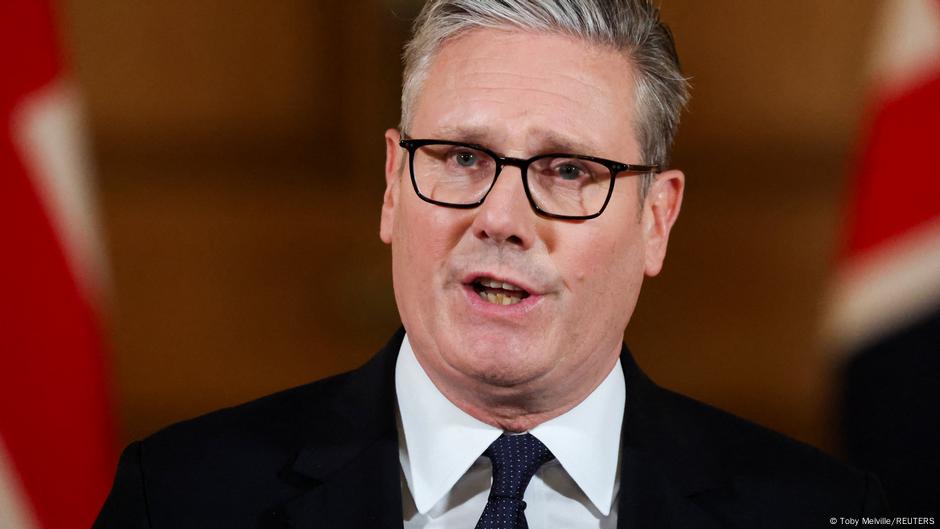
Ce se află în spatele schimbării politicii externe a Marii Britanii privind statul palestinian?
Just a day later, on July 29, Starmer interrupted his cabinet ministers’ summer break for an emergency meeting, after which the policy turnaround was presented in London.
In a statement, Starmer, the leader of the center-left Labour Party, said the UK could recognize Palestine as a state as soon as September unless Israel’s government moved toward meeting certain conditions, including a ceasefire, not annexing the occupied West Bank and committing to a long-term peace process.
Britain believes “statehood is the inalienable right of the Palestinian people,” Starmer said. His government is using the recognition of a Palestinian state as a means of political pressure to push forward the so-called two-state solution.
What is meant by the two-state solution?
To view this video please enable JavaScript, and consider upgrading to a web browser that supports HTML5 video
Until now, the UK has delayed its recognition of a Palestinian state in part because of the country’s own historical responsibility. Between 1920 and 1948, Britain was the administrative power in Palestine, which had previously been part of the Ottoman Empire.
In 1917, the British government issued a statement — the Balfour Declaration, named after then-British Foreign Minister Arthur Balfour — that said it supported the idea of a “national home for the Jewish people” in Palestine. The declaration was made without considering the rights of the Arab majority population there and the move went on to spark violence between local Arabs, immigrant Jews and the British administration.
Two years after David Ben-Gurion, the first prime minister of Israel, announced the establishment of the State of Israel, Britain recognized the country. But when it came to recognizing Palestine as a state, the UK regularly said that this had to be part of a peace deal. This was also strategic: Britain didn’t want to jeopardize its relationships with the US or Israel.
The Balfour Declaration, named after then-British Foreign Minister Arthur J. Balfour (above) supported the idea of a ‘national home for the Jewish people’ in PalestineImage: akg-images/picture alliance
But this historical position has come under ever more pressure. The ongoing conflict in Gaza — fighting there began in October 2023 after an attack on Israel by the Gaza-based militant group Hamas, that resulted in the deaths of around 1,200 people and the kidnapping of 251 — has sowed serious internal divisions in the UK.
In cities like London, Manchester and Glasgow, protesters regularly take to the streets in huge demonstrations calling for an end to the current conflict and Israeli occupation.
Labour Party supporters favor Palestinian state
These popular protests are supported by many local trade unions as well as left-leaning political organizations, such as the Palestine Solidarity Campaign and the Stop the War group (the latter also opposes Europeans fighting in Ukraine).
Former Labour Party leader Jeremy Corbyn has also called for an end to weapons deliveries to Israel. In late July, Corbyn announced he was starting his own political party “to take on the rich and powerful.” Corbyn was suspended from the Labour Party in 2020 after he said a report into antisemitism inside the party under his leadership had been exaggerated for “political reasons by our opponents inside and outside the party, as well as by much of the media.”
According to a YouGov survey undertaken on 24-25 July, around two-thirds of Labour supporters agree with the UK government’s decision to recognize Palestine. Of the general public, the YouGov poll found that 45% think it’s a good idea.
In the British Parliament, 221 members have signed a letter calling for recognition of Palestine. Among the signatories were many Labour Party members. Ministers in Starmer’s cabinet have also pushed in this direction.
Protests against Israeli military actions have regularly taken place in London and other cities across the UKImage: Vuk Valcic/ZUMA Press Wire/IMAGO
Starmer appears to have given in to the pressure, at least partially. But he reiterated the UK’s support for Israel and demands on Hamas in the government statement on Tuesday. “We have been unequivocal in our condemnation of those evil attacks, and our support for the right of the State of Israel to self-defence. Hamas must immediately release all the hostages, sign up to an immediate ceasefire […] and commit to disarmament.”
At the same time though, he was critical of the Israeli government’s military offensive and its policies in Gaza. “Now, in Gaza, because of a catastrophic failure of aid, we see starving babies, children too weak to stand, images that will stay with us for a lifetime. The suffering must end,” he told journalists.
Agencies warn of starvation in Gaza
While the United Nations and leading aid agencies have repeatedly warned of the increasing risk of starvation in Gaza, Israeli Prime Minister Benjamin Netanyahu has insisted there is no hunger in the enclave.
Vezi toate știrile de pe află spatele schimbării
The most recent figures from the health authorities in Gaza indicate that more than 60,000 people have died in Gaza as a result of the Israeli military offensive. Almost half of the dead were women and children.
Aid agencies have said almost the entire population of Gaza has been displaced, some people more than 10 timesImage: Majdi Fathi/NurPhoto/picture alliance
The Gaza health authorities are controlled by Hamas, which administers the enclave. However, the death toll is considered broadly reliable, including by the Israeli military, which has used the numbers in its own briefings. Israel has denied international journalists entry into Gaza since the beginning of Israel’s siege, meaning DW has not been able to independently verify the death toll. A number of recent studies however, suggest it may actually be an undercount.
Starmer’s decision to recognize Palestine may also be a reaction to the fact that France plans to do the same during the UN General Assembly in early September. As French President Emmanuel Macron explained in Paris late last week, France wants to revitalize a peace process there and put international weight behind a two-state solution.
Trump says Starmer ‘rewarding Hamas’
Unlike Macron, though, Starmer is only holding out the threat of recognition if Israel fails to move toward a ceasefire. Observers have argued that it’s more of a balancing act for the UK, something between taking a moral stand and taking careful account of foreign relations with the US.
France plans to recognize Palestinian statehood at the UN General assembly in SeptemberImage: Charly Triballeau/AFP/Getty Images
Trump said he and Starmer had not, in fact, discussed a Palestinian state while in Scotland. Reacting to Starmer’s announcement on Tuesday, Trump said, “I’m not going to take a position, I don’t mind him taking a position.” But later on, during his flight back to the US, Trump told reporters that Starmer was “rewarding Hamas.”
Israel’s Netanyahu has described Starmer’s plan as “appeasement towards jihadist terrorists.”
Currently, 147 out of 193 UN member states recognize Palestine as a state. However, what counts as a state is still disputed with different methods and prerequisites used to identify countries. Even so, several of the conditions usually accepted as necessary for a functioning state are presently not in place for Palestine. That includes a unified government, control over borders and security and clearly defined territory.
In the statement announcing his government’s change of course, Starmer emphasized that the Hamas group must “accept that they will play no part in the government of Gaza” in the future.
This article was originally written in German.
UK plans to recognize Palestine if Israel doesn’t stop war
To view this video please enable JavaScript, and consider upgrading to a web browser that supports HTML5 video
Send us your feedback
Sursa: DW
-
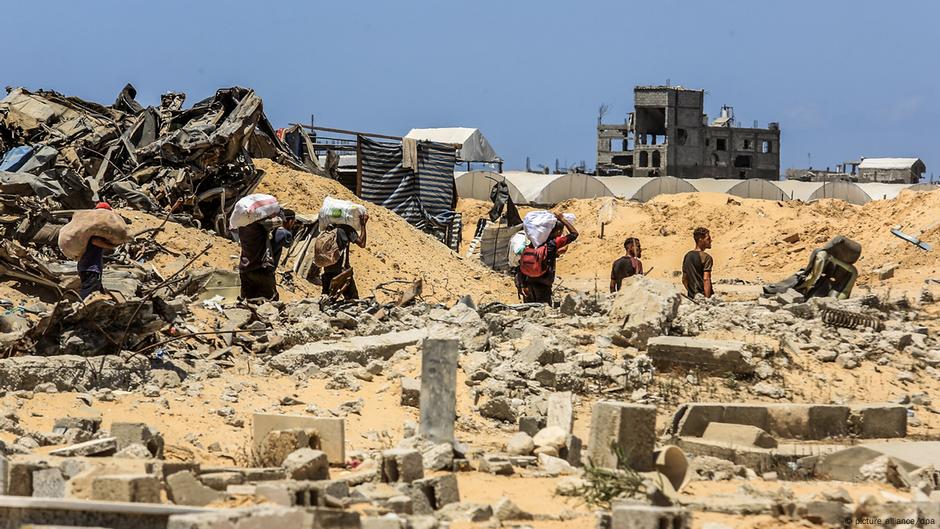
Orientul Mijlociu: Israelul riscă să se izoleze, declară ministrul de externe german
- German Foreign Minister Johann Wadephul said Israel is a risk of internationally isolating itself
- An NGO calls airdropping aid into Gaza futile, cynical
- The White House said US special envoy Steve Witkoff will visit Gaza on Friday
Here are the headlines from Gaza, Israel, and the wider Middle East on Thursday, July 31.
Skip next section Germany has ‘responsibility to prevent’ isolation of Israel, German foreign minister says07/31/2025July 31, 2025
Germany has ‘responsibility to prevent’ isolation of Israel, German foreign minister says
German Foreign Minister Johann Wadephul said Thursday that Israel was in danger of becoming isolated, and Berlin was trying to prevent that from happening.
“Israel must always find friends, partners and supporters in the international community,” he said in Jerusalem. “And that is currently in danger in this situation. If there is one country that has a responsibility to prevent this, then in my view it is Germany.”
Wadephul also called the humanitarian situation in the Gaza Strip “beyond imagination” and said Israel needed to show it was not enacting a policy of “expulsion” and “annexation” in the Palestinian territory.
He also said Israel had a responsibility to allow humanitarian and medical aid into Gaza “quickly, safely and sufficiently to avert mass deaths.”
Wadephul’s comments came after arriving in Israel as part of a two-day trip that will also see him visit the Israeli-occupied West Bank.
https://p.dw.com/p/4yMESSkip next section White House: Huckabee, Witkoff to visit Gaza07/31/2025July 31, 2025
White House: Huckabee, Witkoff to visit Gaza
US Ambassador to Israel Mike Huckabee and Donald Trump’s special envoy Steve Witkoff will inspect an aid distribution center in Gaza on Friday, according to White House press secretary Karoline Leavitt.
“Tomorrow, special envoy Witkoff and Ambassador Huckabee will be traveling into Gaza to inspect the current distribution sites and secure a plan to deliver more food, and meet with local Gazans to hear firsthand about this dire situation on the ground,” she told reporters in a Thursday briefing.
While international politicians often travel to Israel and the occupied West Bank, trips to Gaza are far less frequent. The visit comes after the Hamas-run Gaza Health Ministry said 111 Palestinians had died in the territory over the past 24 hours, including 91 people who were seeking aid.
https://p.dw.com/p/4yMCoSkip next section Israel says it has struck Hezbollah infrastructure in Lebanon07/31/2025July 31, 2025
Israel says it has struck Hezbollah infrastructure in Lebanon
Israel said Thursday it had conducted strikes in Lebanon on key Hezbollah infrastructure, where the militant group manufactured and stored missiles.
Israeli Defense Minister Israel Katz said targets included “Hezbollah’s biggest precision missile manufacturing site,” and the military said it struck “infrastructure that was used for producing and storing strategic weapons” in the Bekaa Valley in the east of the country, and the south.
“Any attempt by the terrorist organization to recover, reestablish or threaten will be met with relentless intensity,” Katz added.
Lebanon’s state-run National News Agency also reported strikes in the Bekaa Valley and the south of the country.
Both Katz and the Israeli military said Hezbollah was trying to rebuild its military infrastructure and demanded that the Lebanese army move to disarm the militant group.
Earlier on Thursday, Lebanese President Joseph Aoun said that his country was determined to disarm Iran-backed Hezbollah.
https://p.dw.com/p/4yMCqSkip next section US, allies claim Iran trying to ‘kill, kidnap, and harass people in Europe, North America’07/31/2025July 31, 2025
US, allies claim Iran trying to ‘kill, kidnap, and harass people in Europe, North America’
The United States and more than a dozen of its allies on Thursday said Iran has been trying to murder and kidnap dissidents, journalists and officials in Western countries.
“We are united in our opposition to the attempts of Iranian intelligence services to kill, kidnap, and harass people in Europe and North America in clear violation of our sovereignty,” the governments of Albania, Austria, Belgium, Canada, the Czech Republic, Denmark, Finland, France, Germany, the Netherlands, Spain, Sweden, the UK and the US said in a statement.
The countries said such activities were being carried out in collaboration with international criminal networks.
London has said it has halted more than 20 Iranian-linked plots to kidnap or kill individuals in Britain, including UK nationals and others Iran views as threats since early 2022.
In October, the Reuters news agency reported that Iran was behind a wave of efforts to assassinate and abduct individuals across Europe and the United States.
In March, the UK government said it wanted the Iranian state to register all political influence activities, citing increasingly aggressive behavior by Iran’s intelligence services.
https://p.dw.com/p/4yM62Skip next section Israel’s Ben-Gvir accuses Germany of supporting Nazism07/31/2025July 31, 2025
Israel’s Ben-Gvir accuses Germany of supporting Nazism
In a post on the social media platform X, far-right Israeli National Security Minister Itamar Ben-Gvir has accused the German government of supporting Nazism.
Without providing further context, the right-wing firebrand posted, “80 years after the Holocaust, and Germany is returning to support Nazism.”
The post was published as German Foreign Minister Johann Wadephul landed in Israel for talks with Foreign Minister Gideon Saar, Prime Minister Benjamin Netanyahu and President Isaac Herzog.
Wadephul said his trip would focus on ensuring that more humanitarian aid reaches people in the Gaza Strip as well as to further iterate German support for a two-state solution to the ongoing conflict.
Wadephul has said recognition of a Palestinian state would be the logical end of the process.
A key member of Netanyahu’s coalition government, Ben-Gvir has said he would leave the government if Israel stops the war in Gaza and has come out in favor of the displacement of Palestinians and expanding Israeli settlements to Gaza. The UK, Australia, Canada, New Zealand, Norway and the Netherlands have imposed sanctions against Ben-Gvir.
What is meant by the two-state solution?
To view this video please enable JavaScript, and consider upgrading to a web browser that supports HTML5 video
https://p.dw.com/p/4yLVDSkip next section Trump envoy arrives in Israel amid rising Gaza death toll of Palestinians seeking aid07/31/2025July 31, 2025
Trump envoy arrives in Israel amid rising Gaza death toll of Palestinians seeking aid
US special envoy Steve Witkoff has arrived in Israel, where he met with Prime Minister Benjamin Netanyahu.
Israeli media reported the meeting would focus on the humanitarian crisis in Gaza and Israeli hostages held by militants, and relations with Iran.
The Ynet news portal reported that Witkoff may visit the Gaza Strip, saying he would like to personally look at the work being done by the US and Israeli-backed Gaza Humanitarian Foundation (GHF).
There have been reports of Palestinians being killed while lining up for food at GHF distribution sites. The GHF’s role in distributing aid has been criticized by several aid organizations, with Amnesty International describing its operations as “illegitimate and inhumane.”
https://p.dw.com/p/4yLRUSkip next section US sanctions Palestinian Authority officials and PLO members07/31/2025July 31, 2025
US sanctions Palestinian Authority officials and PLO members
The United States is imposing sanctions on Palestinian Authority officials and members of the Palestine Liberation Organization (PLO).
The State Department said in a statement that the groups are undermining peace efforts.
“It is in our national security interests to impose consequences and hold the PLO and PA accountable for not complying with their commitments and undermining the prospects for peace,” the State Department said.
The statement did not specify who was being targeted or no longer able to receive visas to travel to the United States.
The State Department wrote that the Palestinian Authority is “taking actions to internationalize its conflict with Israel such as through the International Criminal Court (ICC) and International Court of Justice (ICJ),” and accused them of “continuing to support terrorism.”
The Palestinian Authority is the governing body that has overseen parts of Israeli-occupied West Bank since the 1990s.
https://p.dw.com/p/4yKlVSkip next section Over 200 celebrities sign open letter to end German arms exports to Israel 07/31/2025July 31, 2025
Over 200 celebrities sign open letter to end German arms exports to Israel
An open letter signed by over 200 actors, musicians and media personalities has urged German Chancellor Friedrich Merz to take action in response to the humanitarian crisis in Gaza.
They acknowledge Merz’s increased criticism of the Israeli government in recent days, but urge him to go further, writing “words alone won’t save lives.”
The letter, organized by the group Avaaz, addresses children suffering in Gaza, saying: “More than 17,000 have already been killed. Hundreds of thousands are injured, traumatized, displaced and starving.”
The signatories urged Merz to stop arms exports to Israel, to support the suspension of the EU-Israel Association Agreement and to demand an immediate ceasefire and access for humanitarian aid.
“We too condemn the horrific crimes committed by Hamas in the strongest possible terms. But no crime justifies collectively punishing millions of innocent people in the most brutal manner,” the letter states.
Actors Daniel Brühl and Heike Makatsch and singers Shirin David and Zartmann are among the stars who have signed the letter.
“These steps are deeply in line with European values and would make it unmistakably clear to the Israeli government that even its closest allies can no longer accept the suffering, and that words are not enough,” the letter said.
Germany approved €326.5 million (in arms exports to Israel in 2023, a sharp increase from previous years. In 2024, approvals fell by half amid mounting legal and political pressure.
https://p.dw.com/p/4yKLCSkip next section German foreign minister heads to Middle East, says Berlin cannot be passive07/31/2025July 31, 2025
German foreign minister heads to Middle East, says Berlin cannot be passive
Foreign Minister Johann Wadephul has departed for Israel and the Palestinian territories to hold talks on the worsening situation in Gaza.
In a statement ahead of his departure, Wadephul said the trip aims to address the deepening humanitarian crisis in the Gaza Strip, the ongoing threat from Hamas and growing international pressure on Israel.
In Gaza, desperation grows as food supplies dwindle
To view this video please enable JavaScript, and consider upgrading to a web browser that supports HTML5 video
“Hamas continues to hold hostages, including German citizens, and is still refusing a ceasefire,” Wadephul said. “At the same time, the suffering and deaths in Gaza have reached an unimaginable scale.”
The German top diplomat called for additional humanitarian aid for people in Gaza.
“Only by land can sufficient quantities of aid reach the people,” Wadephul said. “I, therefore, urge the Israeli government to allow the UN and international aid organizations safe access and, above all, safe and effective distribution.”
Wadephul also pointed to increasing international isolation for Israel, citing the recent UN conference in New York and noting that more countries, including some in Europe, are considering recognizing a Palestinian state without waiting for a negotiated peace process.
He said the region is at a crossroads, and that Germany, because of its historic responsibility toward Israel, cannot remain passive.
https://p.dw.com/p/4yJnKSkip next section NGOs say Gaza airdrops smack of ‘cynicism’ and are ‘futile’07/31/2025July 31, 2025
NGOs say Gaza airdrops smack of ‘cynicism’ and are ‘futile’
David EhlAs countries pledge to airlift food to those in need, critics warn it is expensive and dangerousImage: Hatem Khaled/REUTERS
As famine-like conditions take hold in Gaza, human rights organizations have criticized plans by Germany and other countries to drop aid in via airlifts.
They say this is symbolic politics and inefficient.
Read the full story on the criticism levelled at plans to airdrop aid into Gaza.
https://p.dw.com/p/4yJVPSkip next section German foreign minister leads delegation to Israel07/31/2025July 31, 2025
German foreign minister leads delegation to Israel
A German delegation, led by Foreign Minister Johann Wadephul is headed to Israel and the occupied West Bank on Thursday for talks with representatives from the Israeli government and the UN.
The two-day trip is expected to focus on the humanitarian crisis in Gaza, with Wadephul saying he would push for a ceasefire.
“The main goal is definitely a ceasefire,” Wadephul told Politico. As for humanitarian aid, he said “the number of victims in the Gaza Strip is too high. We need to ease the suffering of the people there.”
The visit comes amid increasing international pressure on Israel to end its war, with more and more Western countries pledging to recognize Palestinian statehood.
Germany, however, has said it has no short-term plans to recognize a Palestinian state, despite being committed to a two-state solution.
Siemtje Möller, the deputy parliamentary leader of the Social Democrats (SPD), is also part of the delegation. The SPD governs in coalition with Wadephul’s center-right CDU.
In an interview with public broadcaster ARD on Thursday morning, Möller called for “real pressure” to end the suffering in Gaza.
She also suggested that Germany could consider recognizing a Palestinian state sooner than expected.
“The recognition of a Palestinian state is not a taboo and doesn’t necessarily have to come at the end of a [two-state] process,” she said before the flight.
https://p.dw.com/p/4yJTvSkip next section US special envoy Steve Witkoff to visit Israel: reports07/31/2025July 31, 2025
US special envoy Steve Witkoff to visit Israel: reports
US special envoy Steve Witkoff is scheduled to leave for Israel as the US looks to address the worsening starvation crisis in Gaza, according to US media reports.
The trip comes in the midst of stalled truce talks between Israel and Palestine’s Hamas militant group.
Witkoff said last week that the US had withdrawn its negotiating delegation from Qatar over what he called a lack of willingness by Hamas to reach a ceasefire.
Israel has also pulled its team from the talks.
The US, Qatar and Egypt are mediating between Israel and Hamas, who do not talk directly.
‘Political will’ needed to improve situation in Gaza — UN
To view this video please enable JavaScript, and consider upgrading to a web browser that supports HTML5 video
https://p.dw.com/p/4yIz0Skip next section Trump says ‘very hard’ to make trade deal with Canada after decision over Palestinian statehood07/31/2025July 31, 2025
Trump says ‘very hard’ to make trade deal with Canada after decision over Palestinian statehood
US President Donald Trump has threatened Canada with repercussions for negotiations on a trade deal after it announced its plans to recognize Palestinian statehood.
“Wow! Canada has just announced that it is backing statehood for Palestine. That will make it very hard for us to make a Trade Deal with them,” Trump said on Truth Social, his social media platform.
Trump’s statement is set to intensify a trade war between US and Canada, just a day ahead of the August 1 deadline to seal a tariff agreement.
If the two countries fail to strike an agreement by the deadline, Canada faces a 35% tariff on goods which are not covered under the US-Mexico-Canada trade pact.
On Wednesday, Canada’s Prime Minister Mark Carney announced the possibility of recognizing a Palestinian state at the upcoming United Nations General Assembly, scheduled for September.
The UK and France have also said over the last week that they would support statehood for Palestine.
https://p.dw.com/p/4yIsqSkip next section Welcome to our coverage07/31/2025July 31, 2025
Welcome to our coverage
Dharvi Vaid with AP, AFP, dpa, Reuters | Elizabeth Schumacher Editor
Canada has joined Britain and France to say that it “intends” to recognize a Palestinian state in September.
However, Canada’s decision has resulted in threats from US President Donald Trump as a deadline for a trade agreement between the two countries nears.
Trump has said that Canada’s support for Palestinian statehood would make it difficult for the US to zero-in on an agreement with Canada.
Canada will be hit with a 35% tariff on its exports to the US if a deal cannot be reached, the president said.
Also, US special envoy Steve Witkoff will reportedly travel to Israel on Thursday in light of the deteriorating humanitarian situation in the Gaza Strip.
Stay up-to-date with this blog as we bring you the latest reports, analyses, and explainers on the situation in Gaza.
Sursa: DW
